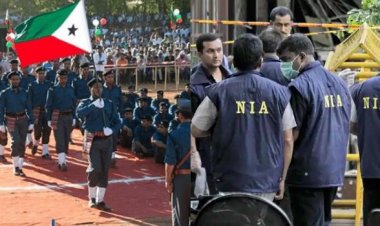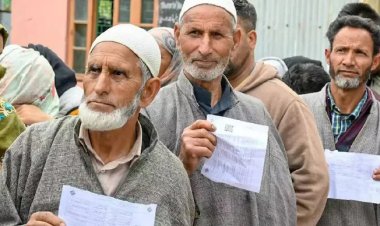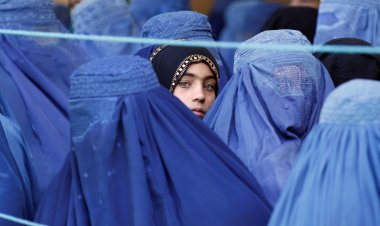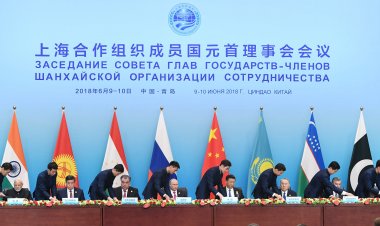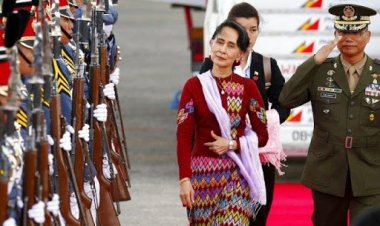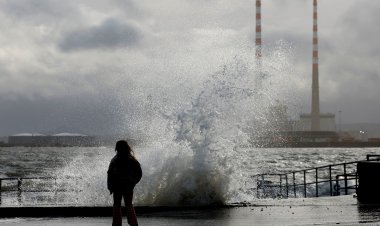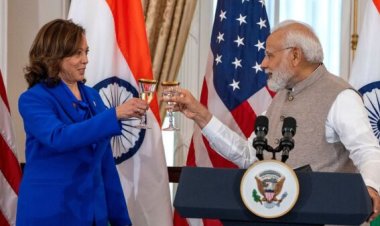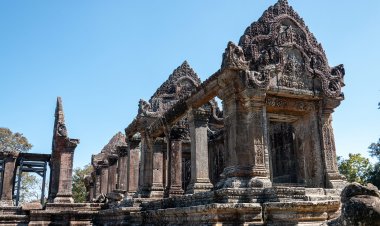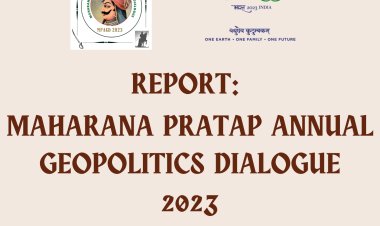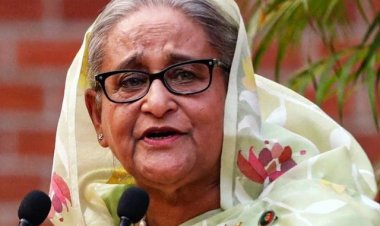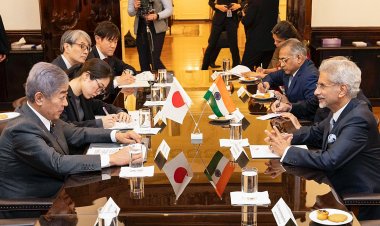Is FATF's Coercion on Pakistan to Take Action Against Terrorists Beneficial to India?
Pakistan might be superficially addressing terrorist concerns within its state, however, it continues to foster terror elements in Kashmir. Are FATF’s coercions doing India any good?
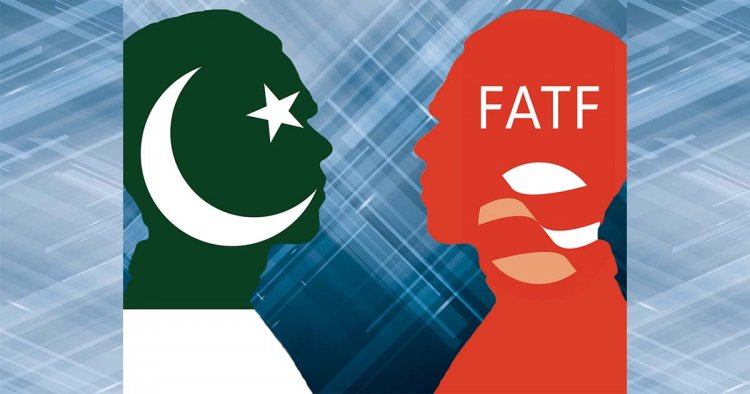
Analysis
By Javaid Trali
On January 8th, 2021, Mumbai attack mastermind and Lashkar-e-Taiba operations commander Zaki-ur-Rehman Lakhvi was sentenced to 15 years in prison by a Pakistani anti-terrorism court in a terror-financing case. The UN-designated terrorist Lakhvi, 61, who was on bail since 2015 in the Mumbai terror attack case, was arrested by the Counter-Terrorism Department (CTD) of Punjab province on 2nd January.
Lakhvi is accused of running a medical dispensary to generate funds and funnel them towards financing terrorism in the South Asian region. The CTD said his trial would be held before the Anti-Terrorism Court in Lahore. He is also believed to be the supreme commander of the LeT's operations in Kashmir.
Weeks before Lakhvi's arrest, LeT founder Hafiz Saeed was also sentenced for a jail term of fifteen-and-half years in a terror-financing case, that being his fourth conviction in the past one year on similar charges. It is also the longest prison-term sentencing of the Jamaat-ud-Dawah (JuD) chief in the five cases brought against him by the anti-terrorism court. The prison terms in these cases cumulatively add up to 36 years, and he will serve the sentences concurrently. The court also imposed a fine of Pakistani Rs 200,000 on Saeed, 70, who is held in Lahore's Kot Lakhpat jail. Reports suggest that he enjoys preferential treatment at the prison with access to exceptional facilities and visitors.
Besides sentencing two top leaders, action has also been initiated against scores of other LeT functionaries, including Saeed's brother-in-law Abdul Rahman Makki, Yahya Mujahid, Zafar Iqbal, Hafiz Abdus Salam, and Muhammad Ashraf in the run-up to the next Financial Action Task Force (FATF) plenary in February 2021.
In October last year, the global money laundering and terrorist financing watchdog, FATF, had retained Pakistan in its "grey list" for failing to fully deliver on an action plan to fight terror financing, giving it time till February to address what it terms as "very serious deficiencies that still has to be repaired."
FATF president Marcus Pleyer has cautioned that Pakistan would not be given a chance "forever" to address outstanding issues and said repeated failure to deliver on the action plan would result in the country being put on the "blacklist."
Pertinently, a total of 41 cases were registered last year against JuD leaders by the CTD of Pakistan's Punjab province, and 28 of them have been decided so far. People familiar with developments say that the action being taken against Saeed, Lakhvi, and others are primarily because of pressure on Pakistan from Western powers and FATF to crackdown the UN-designated terror groups and individuals, as well as terror financing networks, including the prosecution of those funnelling funds to terrorists.
Due to consistent pressure from FATF and other western nations, primarily the US, Pakistan has initiated some action against the LeT – however superficial and cosmetic these actions may seem. The critical question in the context of Kashmir that Pakistan must answer is 'How is it that the LeT, which Pakistan now deems as not good for it, or its people, and its reputation internationally, is still good enough for Kashmir and Kashmiris?'
It is very unlikely that the Pakistani establishment would address or explain the duplicity in Pakistan's anti-terrorism initiative. Pakistani proxies in Kashmir, for decades, promoted, patronized, and presided over the culture of bloodshed and mayhem, also owe an answer to the people of the Valley. It would be interesting to ask the Pak establishment which is vigorously cracking down terrorists today, as to 'How Pakistan feels that it's proxies who have outlived their utility and credibility, are still considered a "sacred" and "strategic asset" in Kashmir.
Pakistan's "cooperation" with the international community through its recent actions against various terrorist entities – even when those actions are primarily selective and not taken against all terrorist groups – needs to be understood not as an outcome of its own volition, but as an actual result of Washington's coercion and the next FATF plenary meeting in February 2021.
There are still a few questions that remain unanswered by Pakistan, despite giving the impression that the country is acting against terrorism and terrorists. What is it that has soured Islamabad's relation with Washington -- which otherwise has remained more than cordial for decades right from Pakistan's emergence as an independent country? What went wrong for a country that has for long staked not only its sovereignty but it is own people's safety and security for securing the interests of the United States of America in the region?
The US campaign against the USSR in Afghanistan would not have been possible without Pakistan's active support -- a policy whose repercussions and ramifications are visible in both Afghanistan and Kashmir up until today. Kashmir has been an unintended victim of the spill-over effect of America's policy and machinations in South Asia.
In the changed political and security circumstances today, when the US and other international powers want Pakistan to go after the terrorists operating from its territory, there is visible reluctance on the part of the latter to embark on such a policy, which would mean training guns even at the elements which the country had over the years seen and nurtured as its "strategic assets," both in Afghanistan and India.
Despite having been coerced into being part of the larger "war on terrorism" after 9/11, Pakistan's counterterrorism approach has remained only selective. This is what has bedevilled the US-Pakistan relationship. Washington and its allies feel that Pakistan's fiddling with the terrorist entities is undermining their efforts to stabilize Afghanistan – and in this belief, which is not unfounded, they so conveniently discount the fact that the activities of "designated terrorist groups" who target India are keeping the two countries teetering on the brink of war. This should have been a much bigger global security issue of all time.
The fact of the matter is that the Kashmir situation, as tragic as it is, despite being an immediate victim of the terrorism emanating from Pakistan, is not evoking the required alarm and concern for the international community, including the USA. The western pressure on Pakistan to crack down on terrorist entities revolves around their interests and concerns about the situation in Afghanistan. That said, the situation in Kashmir has not been a concern, certainly not a priority.
This should explain the reasons for this Pakistani duplicity and insincerity – that those associated with the proscribed LeT are outlaws for Pakistan and must be kept behind bars there. However, even in captivity, they are allowed to have enough leeway and freedom to pull strings of their proxies in Kashmir so that the pot of terrorism is kept boiling there.
Herein lay the great danger. Kashmir has steadily morphed into being a sort of backwater of international priorities. West misses no chance of cajoling and coercing Pakistan to go against the terrorist entities who target its (western) interests but seemingly turns a blind eye when the same entities wreak chaos and mayhem in Kashmir, with the people of this God-forsaken land being at the receiving end of violence and its consequences.
Javaid Trali heads Srinagar-based youth-driven think-tank, JK Policy Institute. He tweets at @Traluk.
Disclaimer: This paper is the author’s individual scholastic contribution and does not reflect the organisation’s viewpoint.
|
|

